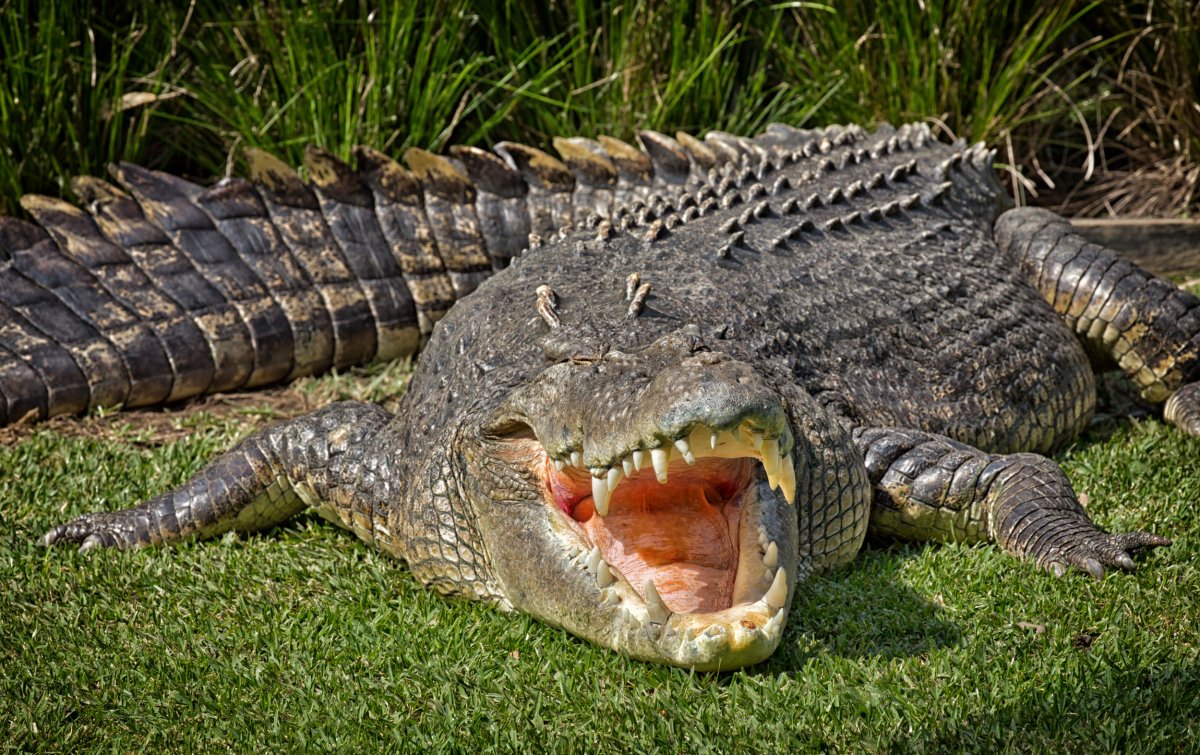Saltwater crocodiles in Australia survived near extinction by developing a taste for terrestrial prey, a new study shows.
Researchers at Charles Darwin University assessed how the large predators changed their meal preferences in the late 1900s, at a time when their populations were dropping dramatically.
The findings, published in Biology Letters by The Royal Society, suggest that this may be what saved them, and determined them a "success story" when compared to other large, endangered carnivores across the globe today.

The entire Australian saltwater crocodile population was driven to near extinction in the 1900s and by 1970, there were only a few thousand remaining in the country, the study said.
As global trade laws were put in place to conserve the species—reducing the amount being hunted for their skin—the population began to steadily recover. Scientists found that in some areas, such as Australia's Northern Territory, the population numbers began to skyrocket.
However, in other areas like Queensland and areas in Western Australia, population recovery was slower. Researches collected crocodile bone samples from northwestern areas of the Northern Territories between the East Alligator River and Darwin Harbour to find out how the population grew at such a rapid pace.
The bones were collected from crocodiles who lived between 1968—a time when there were only a few thousand crocodiles left—and 1986—a time when population numbers increased to over 100,000.
Researchers found evidence to suggest a "major shift" in prey being hunted by the crocodiles over the years.
Crocodiles during this time had stopped hunting marine animals such as fish, frogs and crustaceans, and turned their attention to hunting ones that roamed the land, such as Australia's invasive feral pig species. The invasive feral pig is widely distributed throughout the Northern Territories. The slower crocodile recovery in Western Australia could be put down to less land mammals such as this in the area.
Mariana Campbell, research fellow and lab manager at Charles Darwin University and study author, told Newsweek that if the crocodiles had not adapted in this way, the species "probably would not have shown such a strong population recovery."
"They [would have] re-dispersed into the freshwater floodplains," Campbell said. "The research shows that crocodile recovery is having a significant impact on both freshwater and terrestrial food webs in these areas. Crocodiles are opportunistic feeders and often take whatever prey is available to them. So, the change in diet is presumably due to a change in what prey is immediately available to them."
The study said that further research is required to "better understand the link between prey availability, bioenergetics and crocodile population growth."
Campbell told Newsweek that next steps for researchers are to assess the ecological impact from the ever-growing crocodile population.
Uncommon Knowledge
Newsweek is committed to challenging conventional wisdom and finding connections in the search for common ground.
Newsweek is committed to challenging conventional wisdom and finding connections in the search for common ground.
About the writer
Robyn White is a Newsweek Nature Reporter based in London, UK. Her focus is reporting on wildlife, science and the ... Read more
To read how Newsweek uses AI as a newsroom tool, Click here.






